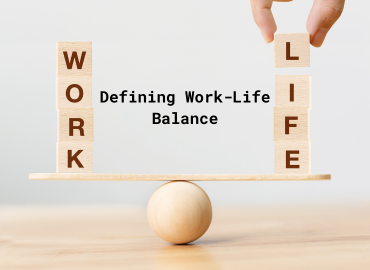Defining Work-Life Balance
Today, we want to look at work-life balance and the impact it has on people. A positive work-life balance means that the demands of someone’s career do not exceed the needs of their personal lives. This can be hard to achieve and maintain, as circumstances we cannot control change around us all the time.
However, it is worth pursuing for any improvements that can be made.
A positive work-life balance helps people work better, as we’ll look at more in a minute. Quality work- life balance is also beneficial for healthy relationships, as we are better able to decide how much time, energy, and attention to give to our relationships.
A healthy work-life balance is important for one’s health at a holistic level, meaning the whole person and all the interconnected systems included. A person whose work-life balance is healthy will benefit from reduced health risks (like what stress does to the body) and better ability to focus on their needs.
It is important to note that one person’s work-life balance may not resemble someone else’s. It is also important to note that work-life balance does not mean that one gives 50% of oneself to work and 50% to all else. One person feels best when they have task-oriented work that lets them have a flexible schedule so they can go to their children’s basketball games, judo competitions, and oboe recitals.
Another person likes spending a lot of time in the workplace because it lets them travel and meet a lot of people. One’s work-life balance needs will shift at different stages, e.g. college versus retirement.
One effect of a healthy work-life balance in the workplace is higher employee retention. A recent study says that companies that actively seek to improve their staff’s work-life balance have a 25% lower employee turnover rate than other businesses. Employee retention has benefits like these:
− More consistent work output
− More consistent quality of work
− A more unified work culture
− More promoting from within
− More consistent customer service
− A better bottom line overall
Someone who is tired and distracted by a poor work-life balance is likely to make more mistakes and not use their talents fully at work and elsewhere. Stress hinders creativity and skill growth.
A positive work-life balance reduces the occurrence of burnout. According to the American Psychological Association (APA), burnout is physical, emotional, or mental exhaustion accompanied by decreased motivation, lowered performance, and negative attitudes toward oneself and others.
Employers can help foster a culture of work-life balance by staying attuned to the needs of their staff and taking steps to accommodate those needs for the benefit of all. An Aviva study found that more people (41%) wanted their current positions because of healthier work-life balance and not because of salary (36%). Also, 88% of employees studied said that workplace benefits other than salary improved
their satisfaction with the job and overall happiness. At the same time, 87% of employees studied said
they want better benefits packages in the next year.
Talk therapy can be a great way to identify problems in your work-life balance and work out strategies to improve the situation and advocate for yourself. We also offer a full metabolic workup to take a
holistic look at mind and body. Write to us on our website anytime or call (585) 442-6960.




